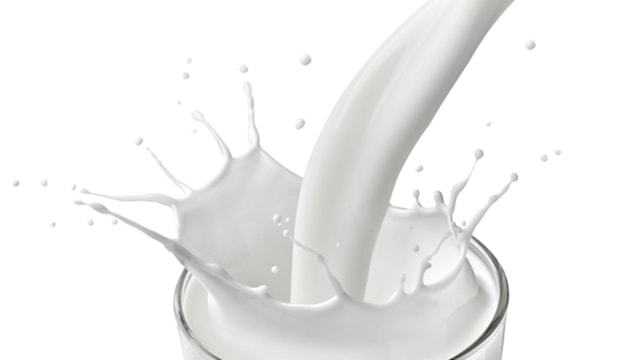Nutritionist to the stars Amelia Freer – whose new cookbook "changed Sam Smith's life" thanks to his speedy and dramatic weight loss – advises her clients against cow's milk, encouraging them to go for alternatives such as almond or rice milk. Cow's milk is one of the seven most allergenic foods and can trigger digestive problems, eczema, asthma, increased mucus and low mood, but thankfully we're spoiled for choice when it comes to milk aternatives. We take a look at the health benefits of each, so that you can choose which is best for you.
Cow's milk is one of the most allergenic foods, hence there being so many alternatives on the shelvesDAIRY MILK
Whole milk is cow's milk with none of the fat removed, thus it is high in natural proteins, fat, calcium, and vitamin D. Skimmed and semi-skimmed milk, meanwhile, have less fat and calories but still have all of the nutritional benefits of whole milk, therefore making them a good source of protein, calcium, vitamins, and minerals – without the saturated fat and calories. Lactose-free milk is processed to break down lactose, a natural sugar found in milk products – it’s also a good source of protein, calcium, vitamins, and minerals.
Pros of dairy milk
1. Whole milk can provide essential proteins and extra calories from fats, as well as vitamins and minerals for infants and the elderly.
2. Lactose-free versions are available for those with lactose intolerance.
3. Widely available in supermarkets and shops.
Cons of dairy milk
Those that are not fat-free are high in saturated fat and calories, meaning cow's milk is not the best option for those with heart problems, high cholesterol, or those who are trying to lose weight.
SOY MILK
Soy milk is made from soybeans and is a popular milk alternative for vegans and those who are lactose intolerant. It is naturally free of cholesterol, low in saturated fat, and contains absolutely no lactose. Soybeans and soy milk are a good source of protein, calcium (when fortified), and potassium.
RECOMMENDED: Vegan Celebrities: All the stars who lead a plant-based diet
Pros of soy milk
1. Good source of protein, vitamin A, B12, vitamin D, and potassium.
2. Contains almost as much protein as cow's milk, yet is lower in calories than whole milk and comparable to skimmed milk.
3. Contains no cholesterol – a huge perk for those with heart conditions.
4. Vegan-friendly
Cons of soy milk
Too much soy may be a problem for those with thyroid disease or other conditions.
Almond milk is low in calories and contains no saturated fat or cholesterol - if unsweetenedALMOND MILK
Made from ground almonds, almond milk is lower in calories than other milks – as long as it is unsweetened. It's also free of cholesterol, saturated fat, and is naturally lactose free. Even though almonds are a good source of protein, almond milk is not. It's not a good source of calcium either, but many brands are supplemented with calcium as well as vitamin D.
Pros of almond milk
1. Low in calories and contains no saturated fat or cholesterol.
2. A good source of vitamins A and D.
3. Naturally lactose free.
Cons of almond milk
It's not a good source of protein and, unless it is fortified, it contains no calcium, which is important for people with conditions like osteoporosis. (People who are allergic to almonds or nuts should avoid almond milk.)
RICE MILK
Rice milk is made from milled rice and water and is the least allergenic of all mentioned milk products, making it a good option for those with lactose or nut allergies. While rice milk can be fortified with calcium and vitamin D, it is not a natural source of either of these, like soy and almond.
READ: 7 of the best foods to boost your mood naturally
Pros of rice milk
1. The least allergenic of milk alternatives.
2. Can be fortified to be a good source of calcium.
3. Vegetarian-friendly.
Cons of rice milk
Rice milk is very high in carbohydrate and very low in protein, so it’s the least desirable choice for people with diabetes as well as those who want more protein, such as athletes or the elderly.
